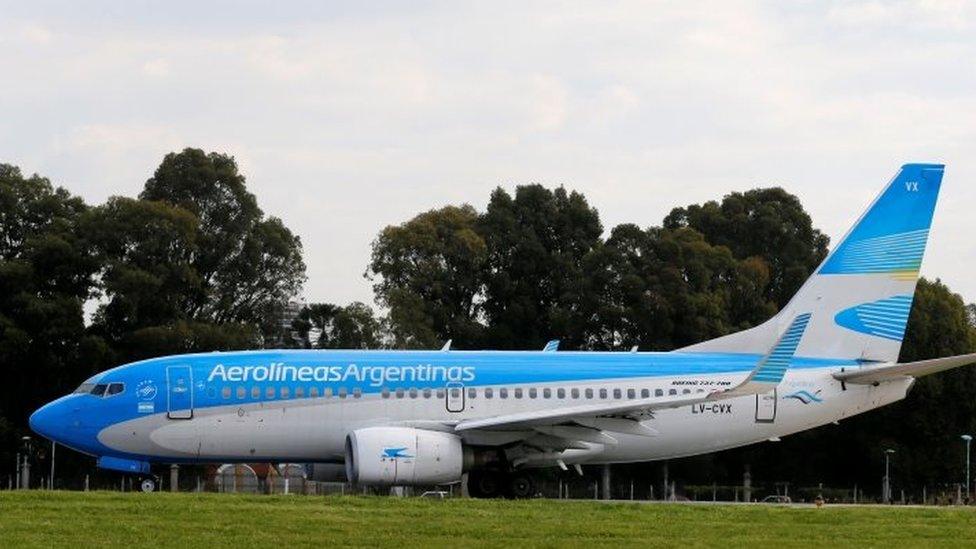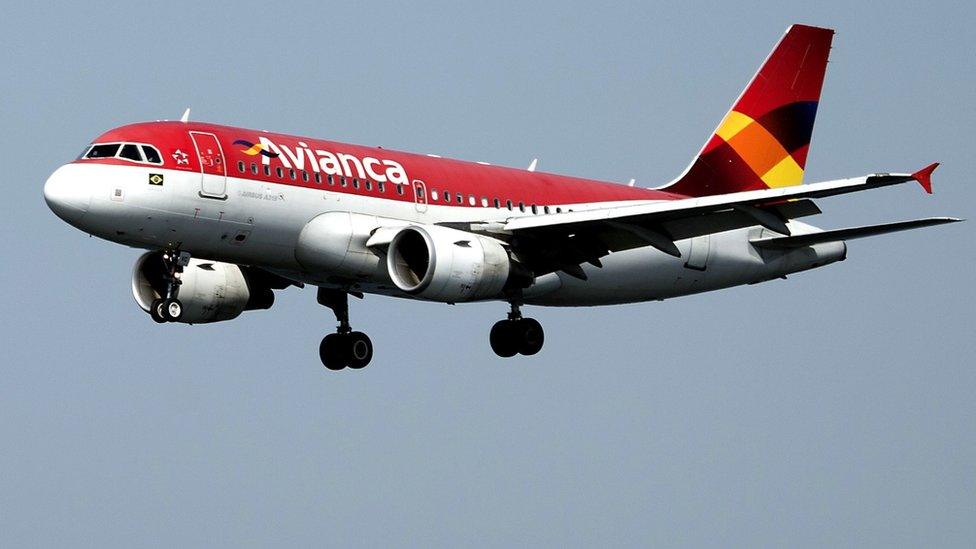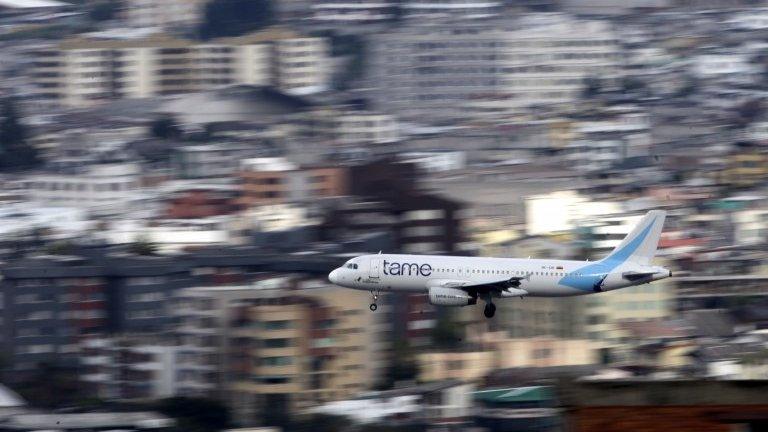Argentine Airlines suspends flights to Venezuela
- Published

Aerolineas Argentinas said it would reimburse all passengers who had bought seats on its weekly flights to Caracas
Argentine Airlines has become the latest carrier to suspend flights to the Venezuelan capital, Caracas.
The company said it had concerns over security in Venezuela because of increasing criminal violence and political uncertainty.
It joins dozens of airlines who have taken similar action.
Iata, the trade body for the world's airlines, says Venezuela is becoming increasingly isolated.
Peter Cerdá, vice-president of Iata, said last week: "The situation has become increasingly difficult, most of Iata's members have left Venezuela. There are only six or seven carriers left operating a very low flight frequency.
"Venezuela is becoming disconnected, it's practically disconnected from the rest of the world, above all by air, and we can't see any solution in the short term."
Avianca suspends flights to Venezuela
Crisis hit Venezuelans leave for Brazil
Since 2003 Venezuela has operated a series of currency exchange controls managed by the government.
Airline companies have been attempting for years to change the local bolivar currency it receives when it sells tickets in Venezuela into dollars.
But the government strictly controls the amount of foreign currency it allows onto the market.
Mr Cerdá said passenger traffic in Venezuela had dropped by 75% in the last four years.
Most of the airlines that have left reported disputes with the Venezuelan government over unpaid contracts and worries over crew safety.
In August the president of the Panamanian airline Copa, Pedro Heilbron, told AFP that the company would continue to operate in Venezuela despite the difficulties.
"We are becoming practically the only operator in the market but our intention is not to leave, not to abandon the market in Venezuela."
He said Copa crews would not stay the night in Venezuelan cities.
The United States airlines United and Delta, and the Colombian airline Avianca, suspended flights to Venezuela this year. The German airline Lufthansa left in 2016.
Air Canada, Aeromexico, Alitalia, Lan, Tam, and Gol left between 2014 and 2015.
- Published27 July 2017

- Published24 January 2014
